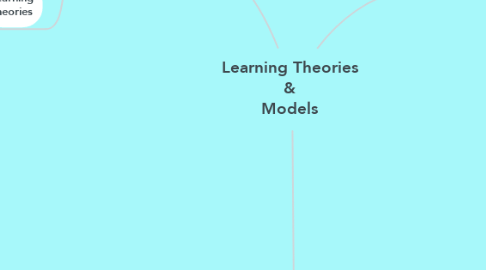
1. Theories
1.1. Instructional Design Theories
1.1.1. Discovery-Based Learning (Bruner)
1.1.2. Elaboration Theory (Reigeluth)
1.1.3. Individualized Instruction (Keller)
1.1.4. Inquiry-Based Learning
1.2. Learning Theories
1.2.1. Behaviorism
1.2.2. Cognitivism
1.2.3. Constructivism
1.2.4. Connectivism
1.2.5. Objectivism
2. Deep Learning
2.1. Creative Thinking
2.1.1. Creative Problem Solving (CPS)-Osborn-Parnes (1950)
2.1.1.1. Learner’s Model: clarify, ideate, develop, implement based on work of G.J. Puccio, M. Mance, M.C. Murdock, B. Miller, J. Vehar, R. Firestien, S. Thurber, & D. Nielsen (2011)
2.1.1.2. assumptions: everyone is creative in some way & creative skills can be learned and enhanced
2.1.1.2.1. core principles: divergent & convergent thinking must be balanced; ask problems as questions;defer or suspend judgment; focus on "yes" and rather than "No, but"
2.2. Critical Thinking
2.2.1. Tishman, Perkins and Jay; Ritchhart; Robinson; Church; Morrison-dispositions
2.2.2. Bloom; Anderson, Krathwohl et al.- taxonomies of skills
2.2.3. Synthesizing frameworks of higher education student learning outcomes. Markle, Brenneman, Jackson, Burrus, and Robbins (2013)
2.2.3.1. Inquiring –identifying, exploring and clarifying information
2.2.3.2. Generating and developing ideas and possibilities
2.2.3.3. Reflecting on thinking, actions and processes
2.2.3.4. Analyzing, evaluating and synthesizing information
2.2.4. Gardner’s (2009) five ‘minds’ for the future –the disciplined, synthesizing, creating, respectful and ethical minds- Learners need to develop the skills to analysis and respond to authentic situations through inquiry, imagination and innovation.
2.2.5. Costa and Kallick; Gardner; de Bono- habits and frames of mind
2.2.6. Marzano, Pickering and Pollock- thinking strategies
2.3. metacognition
2.3.1. Darling-Hammond, Linda, Austin, K., Cheung, M., & Martin, D. reflection: “thinking about what we know” | self-regulation: “managing how we go about learning"
2.3.1.1. Activities that promote metacognition should: Facilitate equal participation Ensure students do most of the talking Take place before, during, and after an experience Happen in different group configurations (individuals, pairs, small group, large group)
